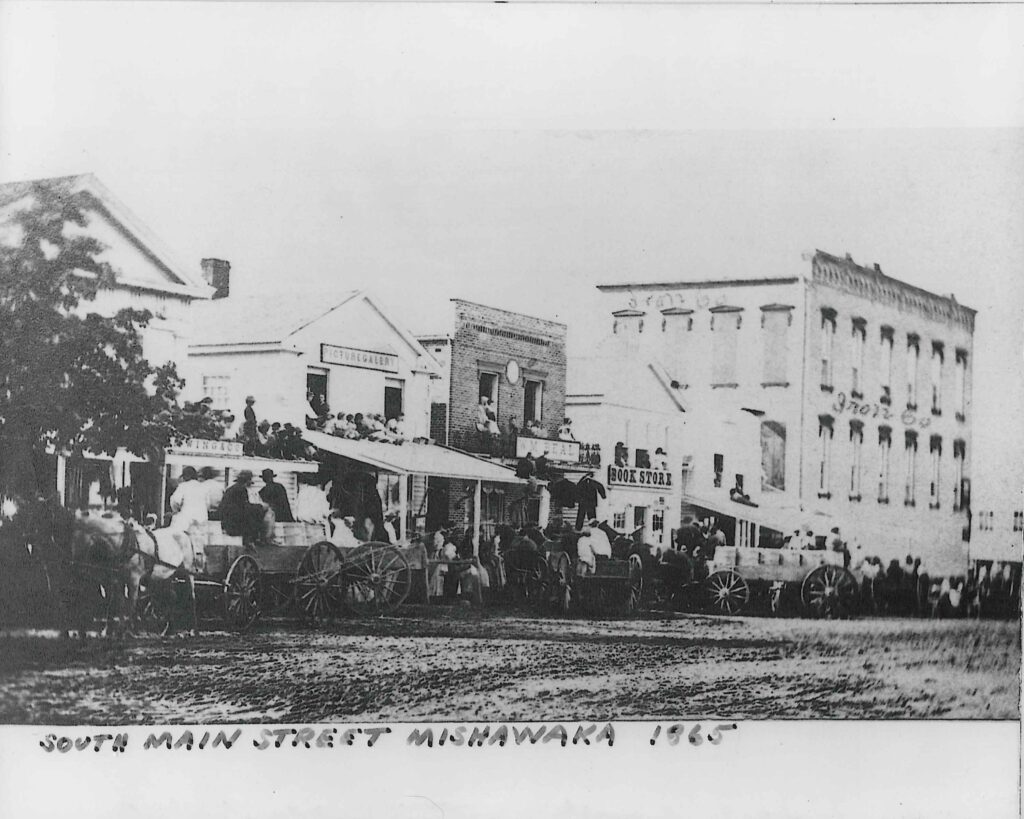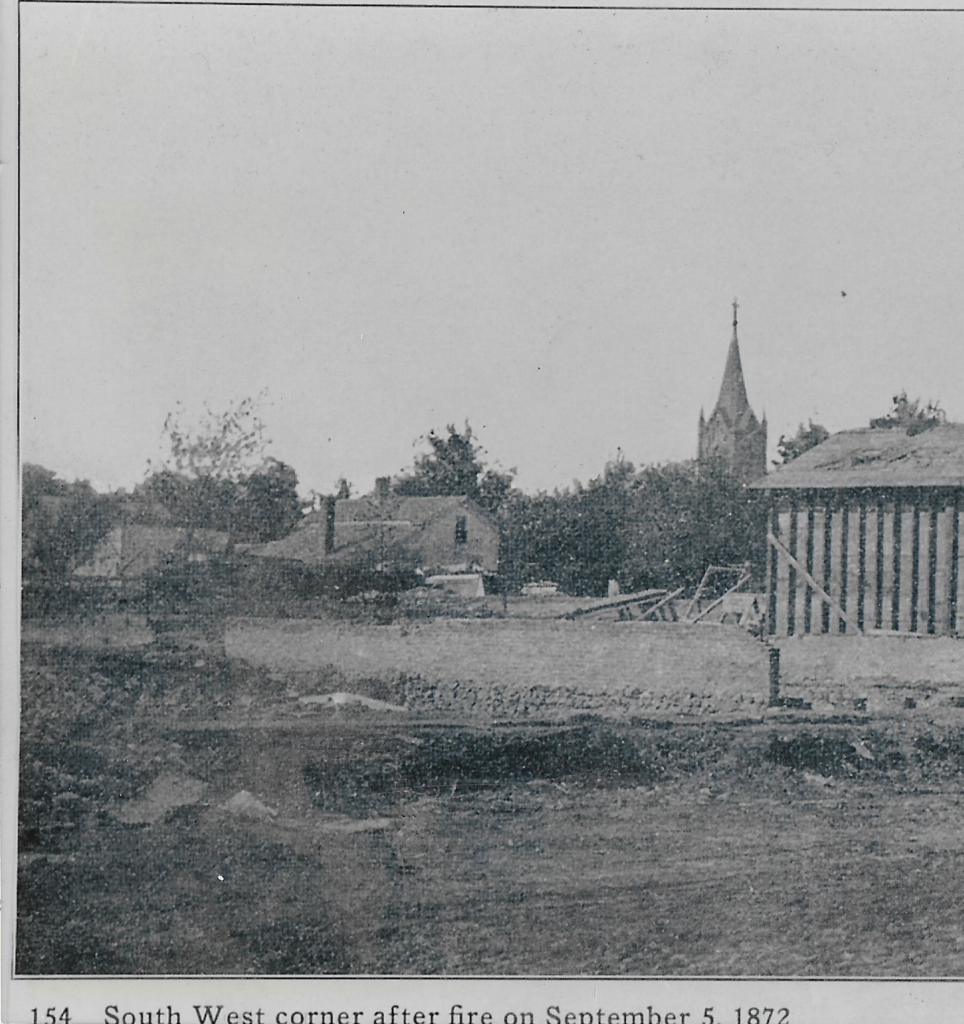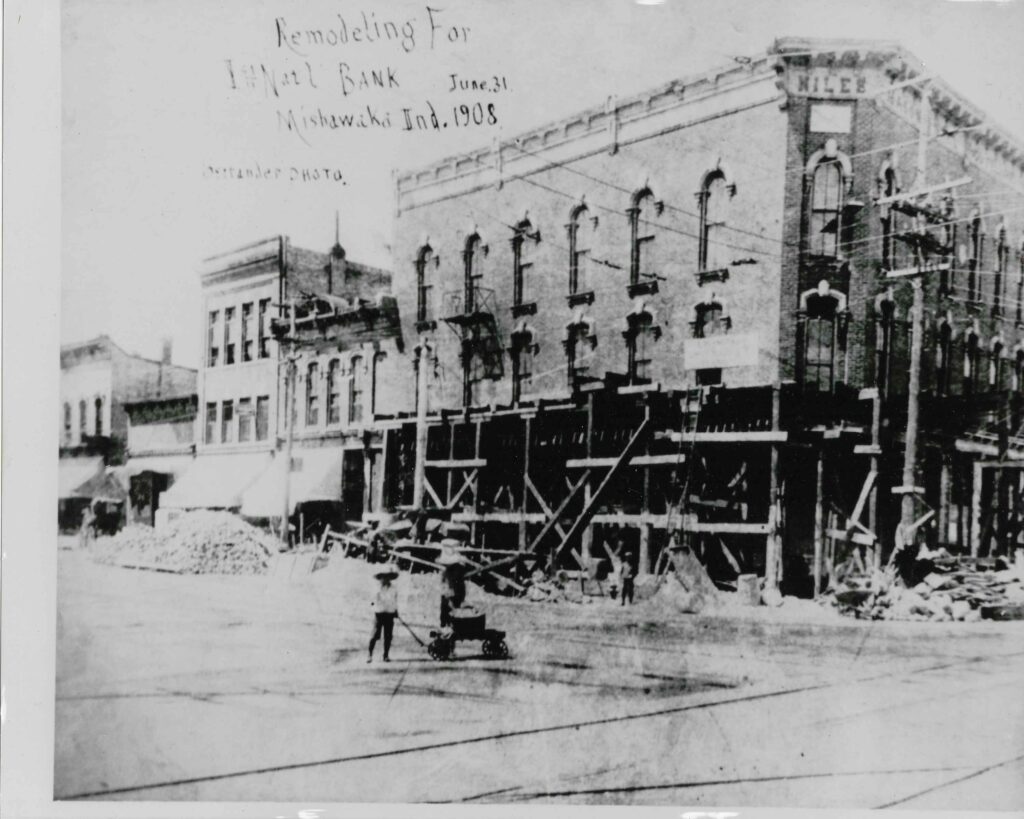The History of our location at 101 Lincoln Way West
Welcome to the rich history of the Phoenix Building, a landmark that stands proudly at 101 LincolnWay West in Mishawaka. Born from the ashes of the devastating fire on September 5, 1872, that razed 49 buildings, including the entire business section of the city, the Phoenix Building emerged as a symbol of resilience and renewal.
After the fire, visionaries like John Niles, Henry Niles, Joseph Burt, and Buford Holcomb undertook the construction of a three-story brick building, completed in 1873. This edifice became Mishawaka’s most notable structure, stretching from Main Street to the adjacent alley. Within its walls, the city found its cultural hub – Burt’s Opera House, a three-story marvel that seated around 1,000 opera enthusiasts.
Over the years, the Phoenix Building has worn many hats. The Century Club, leasing the second floor and opera house, transformed it into a hub of social activity, featuring billiards tables and reading rooms. From dances and shows to concerts, Burt’s Opera House witnessed a myriad of entertainment. It even served as a roller skating rink and venue for professional indoor ball games. The iconic building hosted city primary conventions and housed businesses like Hooks Drug Store and the Mustang Restaurant.
In the 1980s, tragedy struck with the fire that consumed the Covey Restaurant, which occupied the Phoenix Building for decades. Yet, like the mythical bird it is named after, the Phoenix Building rose again, this time under the ownership of Don Kelly and the dedicated stewardship of his son, Rich Kelly.
The phoenix rising from a lion’s head, a symbol of rebirth, once adorned the peak of the building in 1872. Today, that lion’s head finds a home at the Hannah Lindahl’s Children’s Museum on South Main Street, a reminder of the enduring spirit and captivating history of the Phoenix Building. Join us as we continue the legacy of this historic venue, celebrating the resilience that echoes through its walls since that fateful year of 1872.


